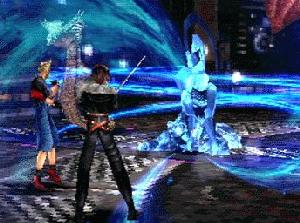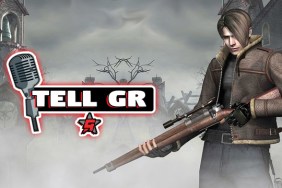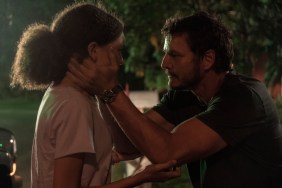Love is a battlefield.
A lot of gamers will be looking closely at Final Fantasy 8 this fall
— after all, it’s the next episode in the never ending Final Fantasy
series and the follow-up to one of the best selling Playstation games ever.
And while the hyped-up Final Fantasy 7 wasn’t
perfect, it does have the distinction of bringing…
-
Good, consistent, storyline
-
Seamless video transitions
-
The ending
-
Battles are downplayed
-
Where are the voices?










